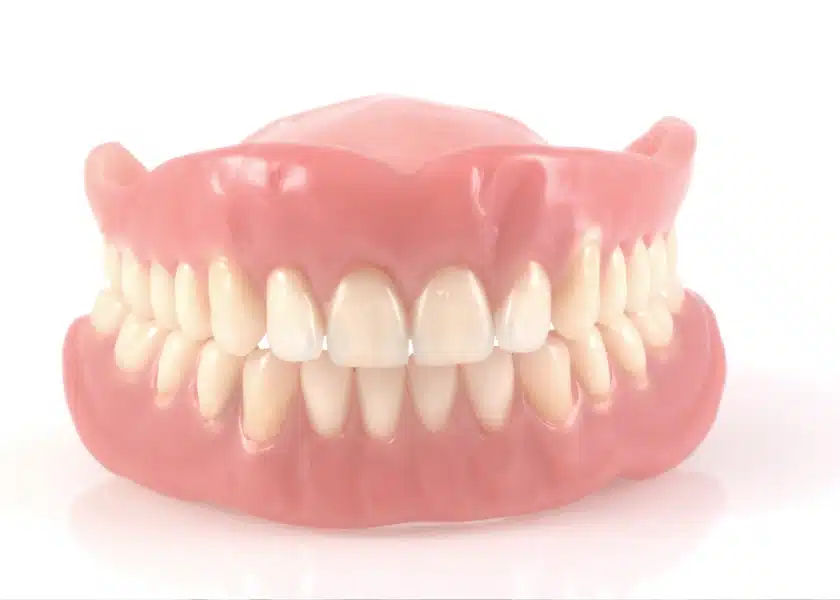Dentures, also known as false teeth, are removable replacements for missing teeth and surrounding tissues. They play a crucial role in restoring your smile, improving chewing ability, and enhancing overall oral health. However, transitioning to dentures can be a significant change for many individuals. Understanding what to expect before and after getting dentures can help make the transition smoother and more comfortable.
When are dentures needed?
Dentures are required in several situations:
Extensive Tooth Loss:
Dentures become a necessary solution for chewing and aesthetics when decay, gum disease, or injury results in the loss of most or all-natural teeth.
Decayed or Damaged Teeth:
Severe tooth decay or damage that cannot be treated with procedures like fillings or crowns may necessitate tooth removal and denture placement.
Gum Disease:
Advanced gum disease like periodontitis can lead to tooth loss as the supporting structures of the teeth weaken. Dentures can replace missing teeth and restore oral function in individuals affected by gum disease.

Aging:
As people age, they may experience natural tooth loss due to factors like weakened enamel, bone loss, and other age-related dental issues. Dentures become necessary to maintain proper chewing function and facial aesthetics.
Trauma or Injury:
Accidents or injuries that result in substantial damage to the teeth may require tooth extraction and dentures to restore the individual’s ability to eat, speak, and smile comfortably.
Dentures are needed to replace missing teeth and restore oral function, aesthetics, and quality of life for people who have experienced tooth loss or damage.
Preparation and Consultation Process for Dentures
- Consultation with Your Dentist:
The journey starts with a consultation with your dentist or prosthodontist. During the visit, your oral health will be assessed, and your dentist will discuss whether dentures are the right option for you.
- Dental Impressions and Measurements:
If dentures are deemed suitable, your dentist will take impressions and measurements of your mouth. These will be used to make custom-fit dentures that align with the shape and size of your natural teeth and gums.

- Discussion of Treatment Plan:
Your dentist will explain the treatment plan, including the type of dentures recommended, the materials used, and the cost involved. This is also the time to address any concerns or questions about the process.
- Extraction of Remaining Teeth (if necessary):
In some cases, remaining natural teeth may need to be extracted before dentures can be fitted. Your dentist will discuss this with you and ensure the procedure is as comfortable as possible.
- Temporary Dentures (if applicable):
If tooth extraction is necessary, you may be provided with temporary dentures to wear while your gums heal and your permanent dentures are made.
Process After Getting Dentures
- Adjustment Period: It’s important to understand that adjusting to dentures takes time. Initially, you may experience discomfort, soreness, and difficulty speaking or eating. These issues are normal and should improve as you become accustomed to wearing dentures.
- Follow-Up Appointments: In order to assess the fit and functionality of your dentures, your dentist will arrange for follow-up sessions. Adjustments could be made to guarantee the best possible comfort and performance.
- Proper Oral Care: Maintaining good dental hygiene is necessary for the longevity of your dentures. Clean your dentures with the help of a denture brush and soak it in denture cleaner overnight daily. Additionally, brush and floss the remaining natural teeth to prevent decay and gum disease.
- Dietary Changes: Stick to soft foods and avoid eating sticky, hard, or chewy foods that can dislodge or damage your dentures. As you get more comfortable with your dentures, you can introduce a variety of foods into your diet.
Additional Considerations
- Speech Improvement: Some individuals may experience difficulty speaking clearly when they first start wearing dentures. Practicing speaking and reading aloud can help improve speech clarity over time.
- Gum Discomfort: You may experience gum soreness or irritation during the initial adjustment period. A denture adhesive can help alleviate discomfort and add stability to your dentures.
- Emotional Support: Transitioning to dentures can have emotional implications for some individuals. It’s important to seek support from loved ones or join support groups to share experiences and receive encouragement.
Conclusion
Transitioning to dentures is a significant change that requires patience and adjustment. By understanding the process before and after getting dentures, you can ensure a smoother transition and enjoy the fruitful benefits of a confident smile and improved oral function. Remember to follow your dentist’s instructions and seek assistance if you encounter any difficulties. Dentures can provide you with years of comfortable and functional use with proper care and maintenance.
Let us transform your smile and boost your confidence today! Contact Diamond Dental, Mt. Vernon, WA, to schedule your appointment. New patients call (360) 512-7258, and existing patients can reach us at (360) 848-6777. Your radiant smile awaits!
FAQs
Begin with softer foods, take small bites, and chew slowly. Avoid sticky foods and ice crunching to prevent damage to both natural teeth and dentures.
Generally, patients require about 30 days to feel comfortable with their new dentures. If you have a partial denture replacing a few teeth instead of a full arch, your adjustment period may be quicker.
The denture fitting process involves several steps, including dental impressions, measurements, and discussions with your dentist about treatment plans and options. If necessary, any remaining teeth may need extraction before dentures are fitted.






